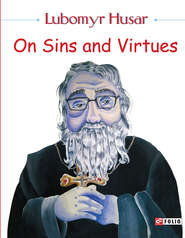скачать книгу бесплатно
Arrogance
Sometimes a person can feel an irresistable desire to make themselves look better than they really are. Meaning, look, I can do it, I’ve done it, I’ve made it – that’s I! Such a desire is not to be confused with dignity which is a manifestation of the divine inside each of us. Arrogance has to do with other moral categories – the need for recognition, particularly the recognition which is undeserved and unmotivated. The need to be constantly praised, glorified and to be regarded as a model. If a person really acomplished something worthwhile, something worthy of appreciation and emulation, there is nothing bad in it. Striving for prominence should be respected, it should not be considered evil. But if one’s achievements are presented as greater than they really are – it is a human blemish related to telling lies or half-truth, or exaggerating.
When I come across arrogance in communication with other people, I usually try not to overreact. I can shrug my shoulders or just grin. One can see right away what the person is striving for – whether they are searching for truth – or long for glory. I usually do not encourage an exaggerated self-esteem.
Showing arrogance means taking pride in something which does not actually exist, exaggerating one’s capacities and virtues. The opposite of it is humbleness or humility. Although, humility can also be false and pretended. For example, I went to school, I studied, I had a chance to see quite a lot in this life, I got a considerable experience and knowledge, I can multiply two by two, I can have an opinion on lots of things, write something, explain something to someone. If I denied I can multiply two by two, it would be a falsity, a lie. Or if Enrike Carouso said he could not sing we would all laugh. Because it would be a lie which would have nothing to do with humility.
